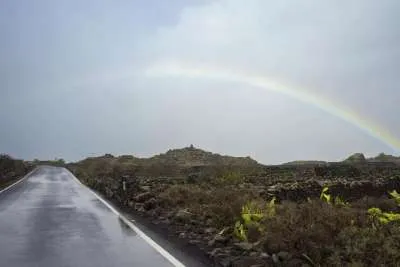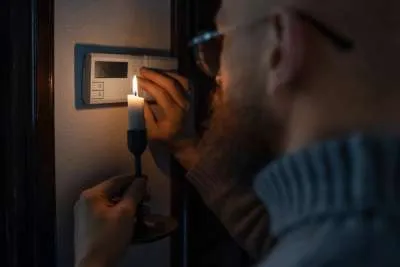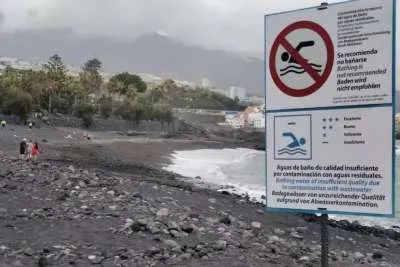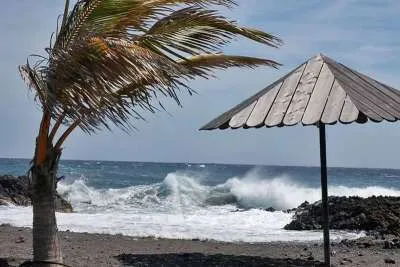Why is topless sunbathing disappearing from Canary Islands beaches?
- 21-07-2025
- Travel
- Canarian Weekly
- Photo Credit: FreePik
Once a symbol of freedom and body positivity, topless sunbathing is quietly vanishing from beaches across the Canary Islands. While once common across all ages on both tourist and local beaches, it’s now increasingly rare to see women without bikini tops, even in traditionally nudist-friendly areas.
A walk between the packed beaches of Los Cristianos and Playa de las Américas on a sunny Saturday might yield only a handful of topless women.
At Las Gaviotas beach in Tenerife, historically known for its nudist culture, visitors now report that nearly everyone remains fully clothed, with only a few older people daring to bare. One couple said, “We were the only ones doing nudism, aside from two older people. The rest were not only covered, they were dressed.”
For many long-time visitors and residents, the change is noticeable. María, a Spanish tourist in her late 30s who has been holidaying in the Canaries for over 20 years, says: “There used to be such a healthy attitude towards the body here. Women of all ages felt comfortable going topless. Now, the only ones who still do it are older.”
Generational Shift and Growing Self-Consciousness
Topless sunbathing was common a decade ago, but is clearly in decline, particularly among younger generations. As Sara, a millennial in her 30s, puts it: “It feels like only us older women still do it. Even we’ve started to give it up.” Sandra, in her 40s, echoes this sentiment: “I used to do it all the time without a second thought. Now, I feel like I’m being watched. That never used to happen.”
There’s no formal study specific to the Canary Islands, but research in Europe backs up this shift. A 2021 report by French pollster IFOP found topless sunbathing is declining sharply across Spain and other parts of Europe, particularly among younger women. The leading reasons: fear of sexual harassment and being photographed without consent.
Safety Concerns and the Digital Gaze
According to the IFOP study, half of young women surveyed said they avoided going topless due to fear of sexual assault, while 48% cited unwanted comments or leering from men. The sexualisation of women’s bodies has led to a form of self-censorship, where comfort gives way to caution.
Another major factor is the fear of being filmed or photographed and ending up on social media. With smartphones now ever-present on beaches, many women worry their image could be captured and shared without their permission. “I just want to relax at the beach like I always have, not end up on some tourist’s Instagram,” said one young woman.
Body Image and Social Media Pressures
Beyond privacy, body image is a growing concern. “Sometimes I’ll take it off if I’m alone, but I feel I look better with my bikini on,” one woman admitted. This pressure to “look good” has intensified with the rise of image-focused platforms like Instagram and TikTok. According to a recent Spanish government study, 83% of young women say social media influences how they view their bodies, while 72% have been targeted with ads promoting cosmetic surgery.
Sociologist Clara Guilló, who worked on the study, warns that these platforms reinforce unrealistic beauty standards, making women feel inadequate if they don’t fit the mould. Nearly three-quarters of young women have received direct comments about their appearance online, fuelling insecurity and even impacting mental health.
The Decline of ‘Body Positivity’ and the Return of Thin Ideals
Though the body positivity movement once promised a more inclusive attitude towards beauty, recent trends suggest a backslide. A 2023 Vogue Business report revealed that just 0.6% of fashion runway looks featured plus-size models, with average sizes making up only 3.7% in 2024. Many brands have relegated inclusive sizing to online-only stores, distancing consumers from the shopping experience and reinforcing exclusion.
In Spain, articles have shown how the so-called “Ozempic revolution”, referring to weight-loss medications, and a renewed focus on thinness are undermining body acceptance. Activist Magdalena Piñeyro says society now shames people who don’t lose weight, while platforms like TikTok glamorise extreme weight loss under the guise of self-care.
Nutritionist Azahara Nieto adds that the ideal body type presented to young people is narrower than ever, making it harder for girls and women to feel comfortable with how they look, especially in public settings like the beach.
A Cultural Shift That’s Hard to Ignore
Whether it's due to harassment, body image pressures, or the looming threat of being filmed, topless sunbathing in the Canary Islands has become far less common. For many women, this shift is a quiet loss of a hard-won freedom, the ability to feel confident and unbothered in their own skin, on beaches where liberation once seemed the norm.
Other articles that may interest you...
Trending
Most Read Articles
Featured Videos
TributoFest: Michael Buble promo 14.02.2026
- 30-01-2026
TEAs 2025 Highlights
- 17-11-2025































































